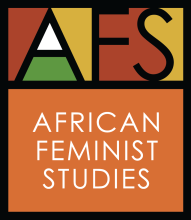Overview of Project
Legal Experience: Gendered Subjectivity in Muslim Women’s Experiences of Muslim Personal Law in South Africa.
Funded for three years, from 2019 to 2021, this project focuses on women’s experiences of Muslim personal law in South Africa, through a study of gender and sexuality in contemporary legal interpretations of Muslim marriage and divorce law and the forms of legal subjectivity they produce.
The legal Experience Project is conceptualised in a decolonial epistemological framework that brings critical legal studies and feminist philosophy together with African feminist theorising on gender difference in Islamic law practices in South Africa. It advances an investigation of the experiences of Muslim women as wives, to examine the forms of gendered legal subjectivity produced as they apply Muslim personal laws to their daily lives. Thus, it expands the discussion from theorising legislative processes and legal texts to the contextualized and lived experiences of women with Muslim family law in South Africa.
In the absence of state regulation or recognition of Muslim marriage, this study offers a space to theorize the forms of gendered legal subjectivity that emerge in a constitutional context where religious laws of marriage and divorce are unregulated and managed by none state actors.
To date the study of Muslim marriage has focused either on the Muslim Marriages Bill and the law reform process (Amien 2010, 2011, 2013)or Muslim women’s experiences of sexuality and reproductivity (Hoel, Kagee & Shaikh 2011; Hoel and Shaikh 2013). Absent to both is an area of study focused upon the intersections of the lived experiences of marriage and sexuality with gendered legal subjectivities derived from historical and contemporary interpretations of Islamic law as well as the experiences of living as a minority religious community in the legal framework of a constitutional democracy. This is the gap in which this project locates itself.
By 2021 discussion has shifted from the Muslim Marriages Bill of 2010 and the 23-year long struggle for legal recognition now rests in new marriage policy reforms underway at the SALRC and the Department of Home Affairs
Begun in 2019, this examination of women’s experiences will bring to light the ways in which women’s lives are impacted through the practices of Muslim family law; importantly, it will also indicate the ways in which the lack of legislation promotes inequality between civil and religious marriage paradigms.
The project builds on doctoral work focusing on “Sex and the Subject of Law: A Study of Gender and Legal Subjectivity in Hanafi Law”. The theoretical framework for the project lies where Islamic laws of marriage and divorce intersect with ideas of legal subjectivity and feminist philosophy. The project works with the theoretical premises that first, historical texts of legal jurisprudence do not produce a definitive concept of legal capacity for women because women do not feature as a definitive historical legal subject of jurisprudence. Rather the law works with a discursive subject produced through various legal situations. Second, in the absence of a category woman, historical texts produce a distinctive category ‘wife’. And third, by contrast, contemporary texts produce a definitive category of female legal subject characterized variously as either oppositional to male subjectivity or indistinct; in both instances, however, these texts conflate the concept woman with wife (see Seedat, 2014).
The current project inquires, through lived experiences of South African Muslim women, how those historical and contemporary understandings of gendered legal subjectivity function.
Links to Affiliated Organisations:
Religious Studies: http://www.religion.uct.ac.za/
ISRU: https://cohro.ukzn.ac.za/research-units-centers/
TIP: https://www.facebook.com/TipFamilyEidgah
MPL Network: https://www.facebook.com/mplnetworkSA
